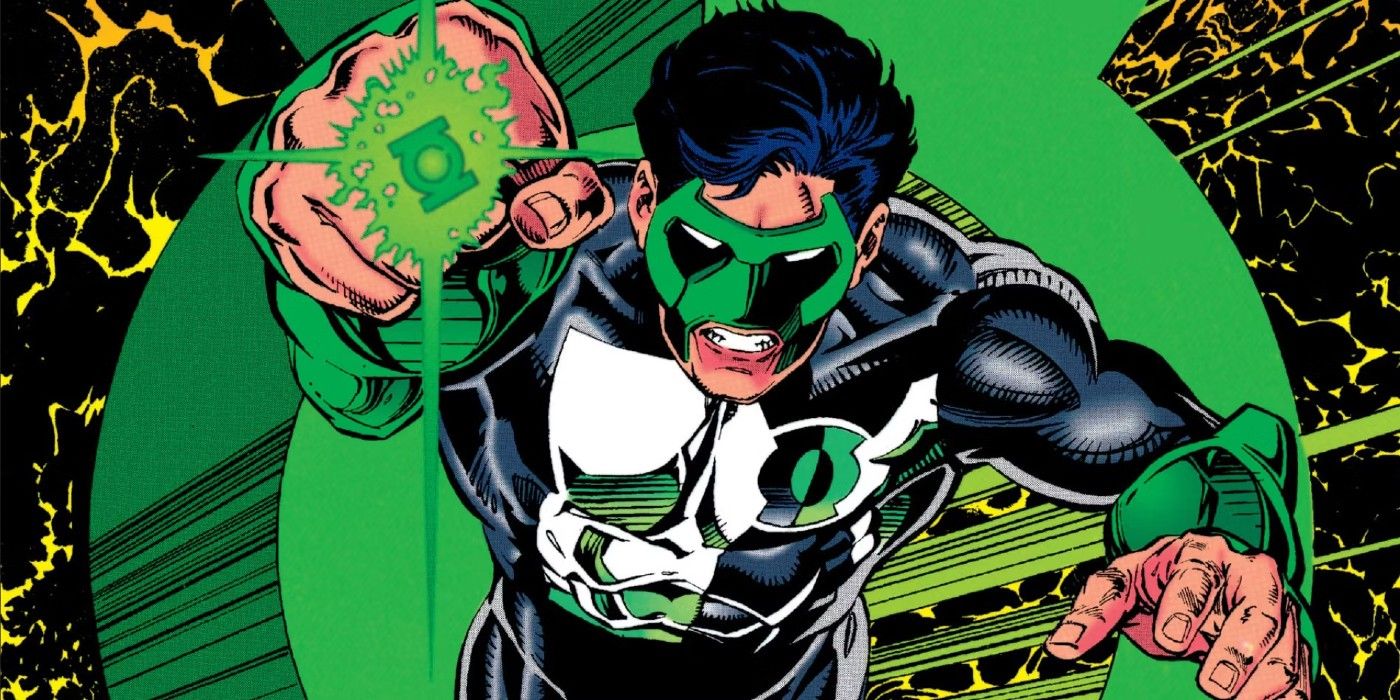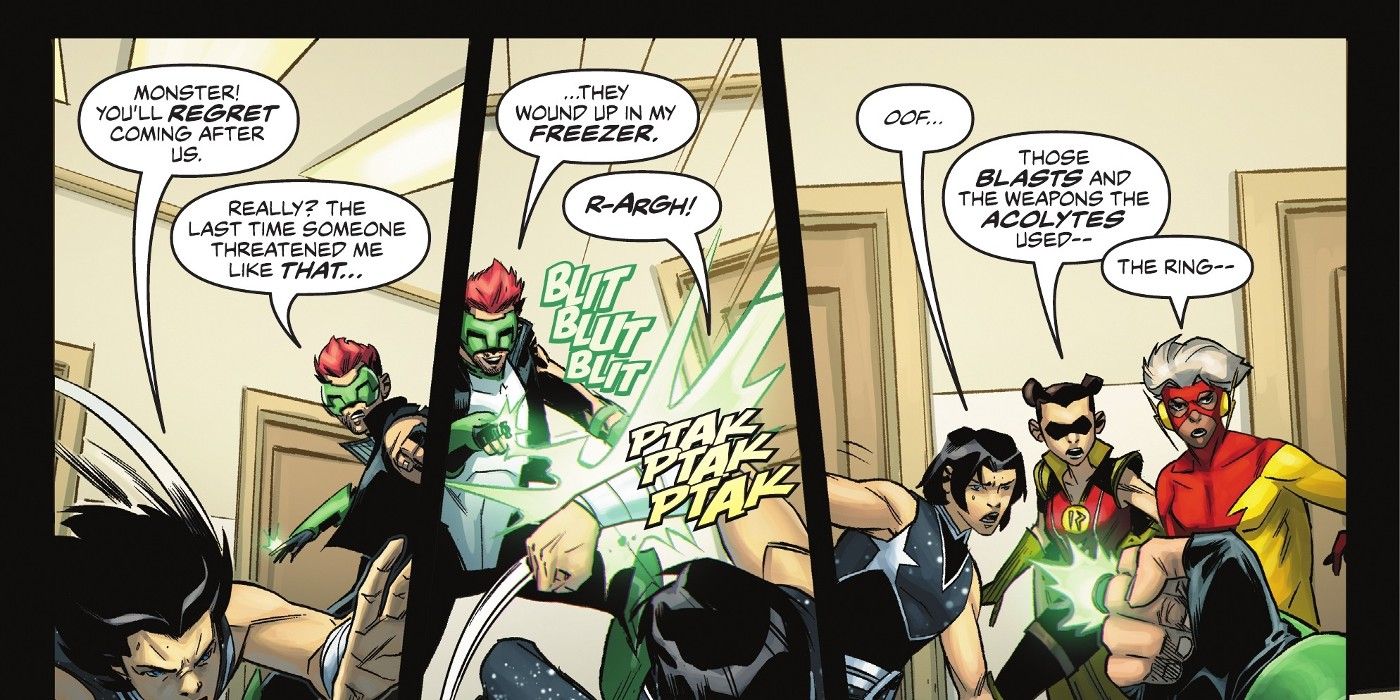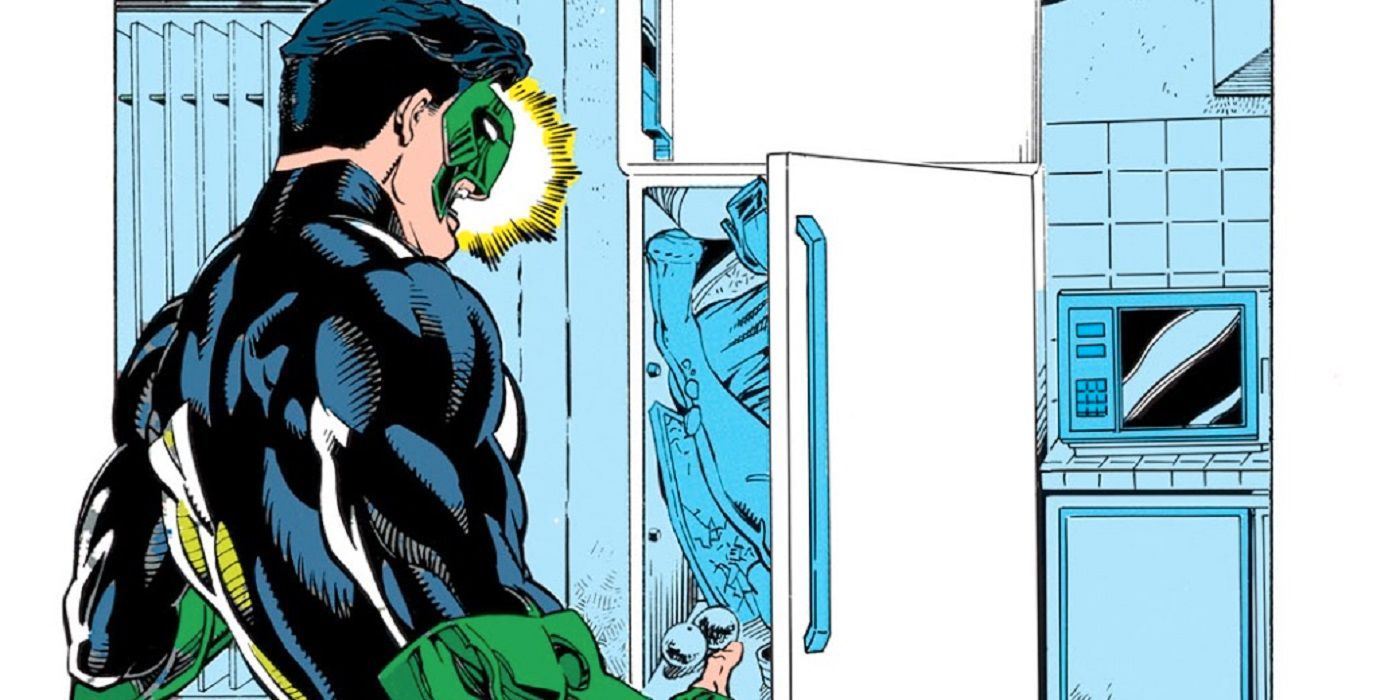The following contains spoilers for Multiversity: Teen Justice #4, on sale now from DC Comics.
Fridging has become a very well-known term in comic book popular culture. The term originated from acclaimed comic book writer Gail Simone based on her website "Women in Refrigerators," which listed the various women in comics who had been hurt, killed or otherwise tortured over the years to motivate the male lead. The website's title was in reference to 1994's now infamous Green Lantern #54, by Ron Marz and Steve Carr, Derec Aucoin and Darryl Banks. The issue ended with the horrifying cliffhanger which saw Kyle Rayner's girlfriend, Alex Dewitt, killed and stuffed in the hero's fridge.
The term has grown beyond the realm of comics, but that first incident with Kyle Rayner still lives on in Green Lantern mythology and the greater mythology of the DC Universe. The most recent reference came in Multiversity: Teen Justice #4 (by Ivan Cohen, Danny Lore, Luciano Vecchio, Enrica Eren Angiolini and Carlos M. Mangual). The teen heroes are currently facing the evil Green Lantern corps of Earth-11. Although most heroes on this Earth are gender-swapped, some are closer to their Earth-0 counterparts. That is certainly the case for Kyle Rayner, who has a more twisted history on Earth-11.
Exactly how twisted this Kyle really is was hinted at in a line in this issue, one which referenced the infamous ending to Green Lantern #54. After the Lantern killed an innocent girl who just happened to be in the wrong place at the wrong time, Teen Justice were outraged by his needless cruelty. A threat from Troy prompted the evil Green Lantern to claim that the last time someone threatened him like that "they wound up in [his] freezer."
This is certainly a surprising twist on the original story. On this Earth, Kyle Rayner himself was the one stuffing the deceased into a freezer. Although still a horrible piece of DC history, it seems less horrible in this context. Rather than the death being used to motivate the character, it only happened because of the character. The deceased character in question (whose identity is left unconfirmed) still retained their autonomy despite the act. Their death was their own, not reduced to being a plot device for another male character.
In a way, this Kyle being the one doing the actual fridging shows the original incident in a more truthful light. The only reason that Alex DeWitt died was to motivate Kyle Rayner. In essence, he was the cause of her death. Major Force, the villain who killed her, may have been the one to have committed the act in the story, but that was solely on the surface. In terms of the mechanics of the comic itself, Kyle Rayner was the cause of the character's death. Therefore, Kyle being the killer on Earth-11 strips away the supposed noble intentions, honing in on the sexist motivations for the original death and revealing the true killer of Alex DeWitt.
As well as the way this moment from Multiversity: Teen Justice #4 fits with the narrative of the original fridging incident, it fits perfectly within the world of Earth-11 as well. As much as it paints this Kyle Rayner as an all-out, reprehensible villain, it fits with the sexist history of Earth-11's Green Lantern corps too. Their interests align against those of the women-dominated universe they live in. Holding on to many deeply misogynist views, they feel that those views justify their villainous actions, no matter how cruel. The fact that one of their most well-known corps members actually originated fridging in this universe seems appropriate in that context.
The term fridging will still live on in infamy for Green Lantern for years to come, as this issue has proven. How comics respond to that legacy though is important. This rather twisted reference feels like it actually fits with that legacy. It's still a horrible moment but at least it's treated as such. As well as that, in this case, the man in question is finally acknowledged as the true reason Alex DeWitt was killed.



